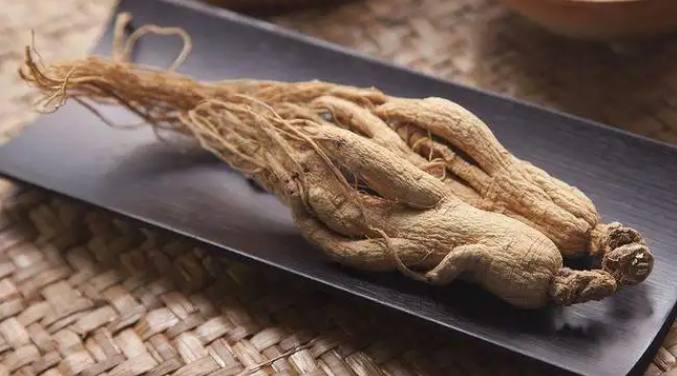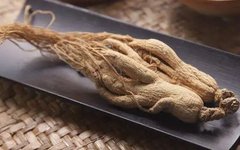
Ginseng (Renshen) is a traditional and precious medicinal herb in China, known for its various benefits and has been used for thousands of years. The earliest pharmacological text in China, the Shennong Bencao Jing, records it as a superior herb, stating that ginseng can “tonify the five organs, calm the spirit, stabilize the soul, stop palpitations, eliminate evil qi, brighten the eyes, enhance intelligence, and prolong life with long-term use.” Additionally, ginseng serves as a medicinal and edible product with significant effects in treating diseases and promoting health. However, there are many misconceptions about how the public can scientifically consume ginseng to effectively harness its benefits.

1. Does Ginseng Cause Heat?
Case 1: Old Zhang’s son bought expensive ginseng as a supplement for his father, who soaked it in liquor and consumed it daily. Three days later, he experienced dry mouth, nosebleeds, and other symptoms. This is what people commonly refer to as the phenomenon of ginseng causing heat, resulting from improper consumption leading to dry mouth, nosebleeds, irritability, and sores.
The main reason is the excessive consumption of ginseng. Ginseng is a qi-tonifying herb and is considered yang in nature; excessive tonification can lead to an imbalance of yin and yang. An excess of qi manifests as heat, and when heat is excessive, it depletes yin fluids, causing symptoms such as dry mouth, sore throat, irritability, insomnia, dizziness, tinnitus, and forgetfulness. Ginseng has strong medicinal properties, especially the cultivated ginseng (Yuan Shen) and wild mountain ginseng (Shan Shen), which have high levels of active ingredients. Overconsumption can lead to nosebleeds and mouth sores, which not only fail to provide the intended benefits but can also cause adverse reactions. Generally, the daily dosage for adults of dried cultivated ginseng should not exceed 3 to 5 grams (3 grams in summer, 5 grams in winter). The dosage of pure wild mountain ginseng should be much lower. As long as people do not exceed the recommended standards provided by experts, consuming ginseng or ginseng products regularly should not lead to heat symptoms.
2. Is American Ginseng More Effective than Chinese Ginseng?
Case 2: Xiao Wang went to the pharmacy to buy supplements for his mother and noticed that American ginseng was more expensive, leading him to believe it was more effective than Chinese ginseng. This is also a misconception. American ginseng (Xi Yang Shen) is native to the United States and Canada, and the high import tariffs contribute to its higher price. Recent research by Chinese experts indicates that Chinese ginseng has 56 effective components beneficial to the human body. Studies by both Korean and Chinese experts have shown that Chinese ginseng is superior to American ginseng. The differences in their growing environments and habits also highlight this distinction. American ginseng can be cultivated in fields and harvested in just 3 to 4 years, while Chinese ginseng must be grown in unplanted humus soil, requiring relocation after 3 years (or replanting in fresh soil) and then growing for another 3 years, totaling 6 to 8 years. Some ginseng varieties may require two relocations, with a growth period extending to 10 years. The lifespan of mountain ginseng can reach several decades. Comparative studies between Chinese red ginseng (Hong Shen) from Jingyu County and Korean ginseng (Tianhao) have shown that the content of various indicators in Chinese red ginseng is mostly higher than or comparable to that of Korean ginseng, indicating the superiority of Chinese red ginseng.
3. Should Ginseng Not Be Consumed in Hot Weather?
Case 3: Old Li’s friend in Sanya asked if he could send him ginseng for nourishment. Is it inappropriate to consume ginseng in hot weather? This concern is also a misconception.It is not that hot medicines should not be used in hot weather, but rather that one should avoid using inappropriate hot medicines. If the diagnosis is clear and the medication is appropriate, using warm or hot medicines in summer can still prevent and treat diseases effectively. In hot weather, the continuous heat and humidity can exacerbate conditions, making it difficult for those who are chronically ill, post-surgery, or elderly and weak to adapt to rapid temperature changes, leading to heatstroke symptoms. Even healthy individuals may experience symptoms of “bitter summer syndrome” due to excessive sweating and drinking, resulting in decreased resistance and feelings of dizziness, fatigue, and chest tightness. Ginseng’s ability to support righteous qi can enhance the body’s adaptability to harsh environments and resist the invasion of summer heat and humidity, making it beneficial for preventing heatstroke. Therefore, consuming ginseng in summer can also be advantageous. However, it is essential to control the dosage; if kept within reasonable limits, it should not cause heat symptoms or other side effects. Generally, the recommended amount of red ginseng in winter is within 5 grams, while in summer, it should be limited to 3 grams. Additionally, individuals should adjust the dosage based on their physical condition and specific illnesses.
4. Can Young People Not Consume Ginseng?
Case 4: Xiao Zhang, 18 years old, is preparing for a long-distance running event, and his grandfather gave him a piece of ginseng to boost his stamina. Can he consume it? Many people believe that young individuals, being energetic and strong, do not need ginseng for nourishment. This viewpoint also contains some misconceptions. The purpose of ginseng consumption differs between young and elderly individuals. Elderly people consume ginseng to replenish qi, combat aging, prevent diseases, and prolong life, while young people take ginseng to enhance their energy, stamina, and vitality. Ginseng also has anti-fatigue, cold-resistance, and cardiovascular protective effects, so during periods of intense mental or physical labor, consuming ginseng or ginseng soup can help combat fatigue, improve endurance and physical strength, enhance cognitive abilities, and boost memory.
 END
END
Source:Beijing Association of Traditional Chinese MedicineQuality Management and Traceability of Chinese Herbal PiecesProfessional Committee
Author: Jia Chunling, Capital Medical University Affiliated Fuxing Hospital
Reviewed by: Zhao Kuijun, Chairman of the Professional Committee of Quality Management and Traceability of Chinese Herbal Pieces, Beijing Association of Traditional Chinese Medicine
Editor: Chen Yixuan
Reviewed by: Han Weiwei, Supervised by: Yang Na
We welcome your submissions. Submission email: [email protected]

